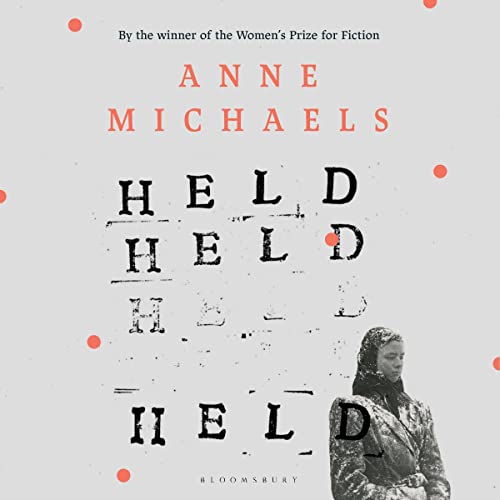An immaculate but disquieting narrative across time

Anne Michaels | Held | Bloomsbury: £9.99
Reviewed by Sam Lamplugh
Novels – good ones at least – utterly submerge the reader in their concerns, their perspectives and their characters for the entire length of their span. This is because, as John Berger noted, “the story’s voice makes everything its own.” Held, Anne Michael’s 2023 narrative of memory and time, is a good novel. We know this because it has many glowing write-ups from important people on its inside cover. We also know this because it was shortlisted for this year’s edition of the Booker Prize. It is dedicated, among other people, to Berger himself. It is, in every way, in exalted company.
Held is, on a word-by-word, sentence-to-sentence basis, one of the most perfect novels I have ever read. It also struck me, as I was whisked seamlessly through its two hundred or so physical pages and hundred or so years of narrative time, as one of the coldest and least human I have encountered in many years.
The narrative is built from twelve apparently discrete (and not immediately obviously connected) chapters of varying lengths, arranged non-sequentially, the earliest taking place in 1908 and the latest in 2025. Much was made in early reviews of this ‘difficult’ structure; perhaps too much. Michaels is a deft enough storyteller to guide the reader through weighted hints or direct linkages, and symbols reappear across the looping pieces of narrative like a carousel, further joining the generations. The structure, by the novel’s end, is crystalline: immaculate, gapless, and without much space for the reader to breathe into. Few lacunae are left unfilled. While it is occasionally unclear to begin with how certain chapters fit into the overarching genealogy, we are always led to an understanding eventually, either through a single moment of epiphany or an accumulation of detail. We are rarely trusted to wonder for long.
The reader soon learns that they are encountering a family history, with daughters, sons and grandchildren experiencing love and loss over the years. Michaels’ thrust seems to be towards an evocation of the universal human experience as such: a thrust undergirded by her narrative voice, which certainly adheres to Berger’s formulation in making everything its own.
In Held, the ‘everything’ which fills the world is poetry; specifically a high poetic register wherein a father doesn’t fear for his future, but instead ‘felt it impossible to describe what the world might be’; where a post-coital husband doesn’t feel simple love, tiredness, or relief but rather a keen sense that ‘he had become part of the human story’; where a fleeing woman has time, amidst her terror, to note that ‘truth is the only disguise needed in a corrupt world.’ That these constructions are often startling and original should be no surprise—Michaels has a distinguished career in poetry—but their consistently dreamlike quality comes, ultimately, at the detriment of the novel as a whole and at the expense of the reader’s ability to relate to any of her poetic ciphers as real characters, never mind potential avatars of actual human life.
Does it make sense for characters born a century apart to shape their perception of the world in the same rich poetic form? Are we to believe that every member of this family has the same tendency to pose seemingly rhetorical questions only to answer them definitively in the next sentence? A photographer in the novel’s longest chapter asks and replies: ‘What is fate? When struggle is the same as surrender.’ When his granddaughter’s experience leads her to the same conclusion in much the same terms, sixty years later, we are free to admire the artistry of the writer’s technique, but we may reasonably struggle to see the intervening years as anything other than setup, architecture, construction: beautiful, yes, but devoid of warmth.
There is, ultimately, no mess to be found in Held. No character at any point in the hundred-year narrative compromises themselves, no individual makes an assumption which is later proven wrong. Nobody makes a joke that doesn’t land. None of the family crack any jokes at all, as it happens. Michaels’ novel is an immaculate assemblage, that much seems difficult to argue, and may be in no small part the reason behind its success. It left me, ultimately, with a deep sense of disquiet. When we write novels, the voices we choose make everything their own, yes, but this everything is fiction. Nonetheless, in choosing how to present their fictional worlds writers make moral and ethical claims about how our world—the real world—should (or could) be. Living in the world presented by Held, among its people, for two hundred pages, was a deadening experience. Akin to being inserted into a snow-globe, placed in a vice and told to watch the flakes fall where they willed, without asking questions. The title is intended, I suspect, to refer to the warm embrace of family. Other interpretations are available.
Reviewed by Sam Lamplugh
